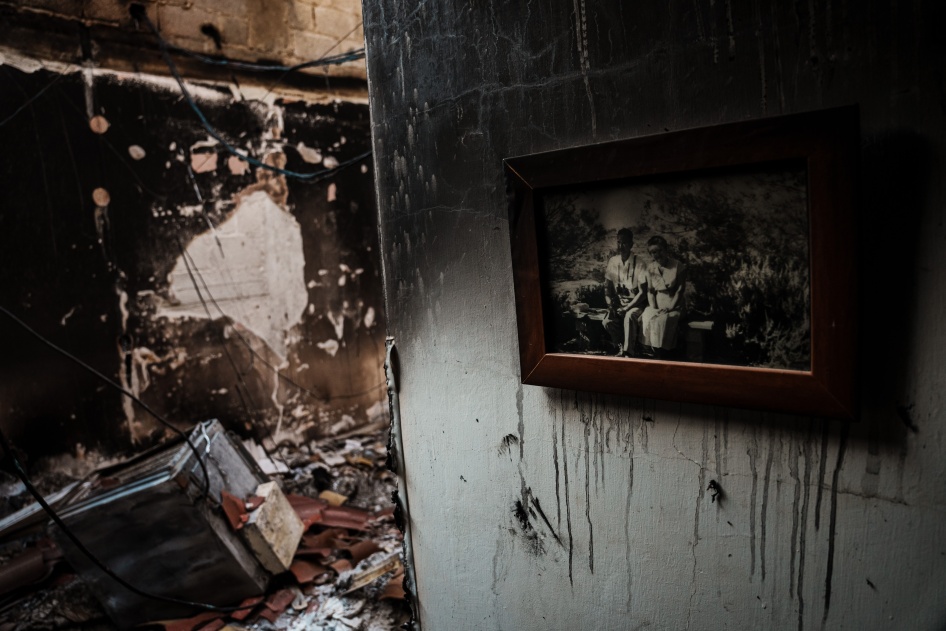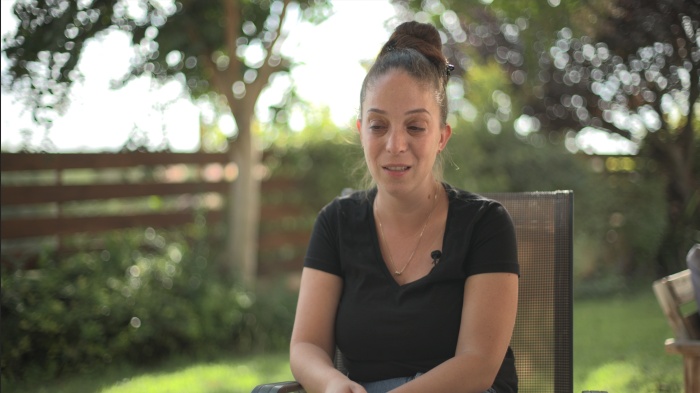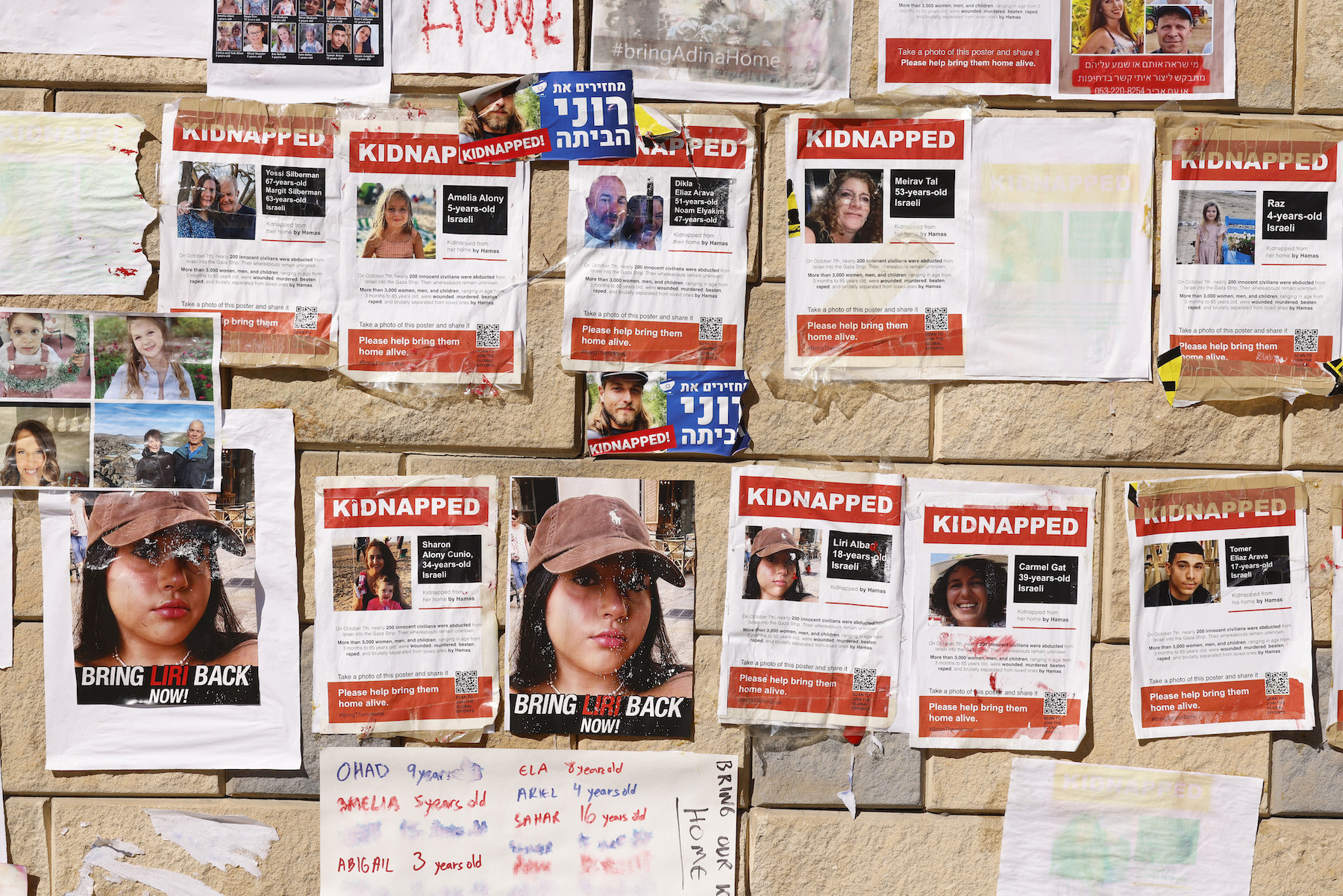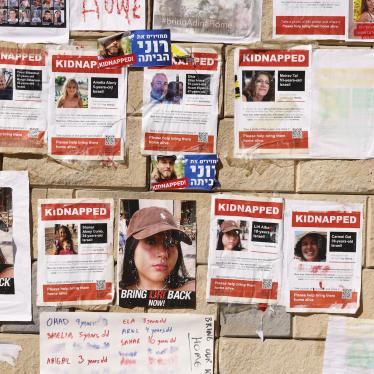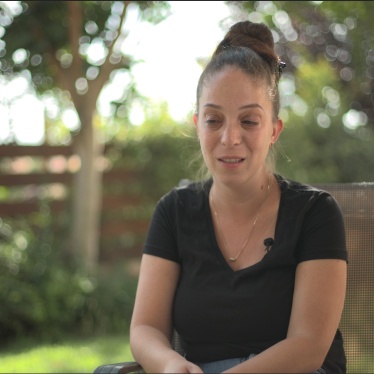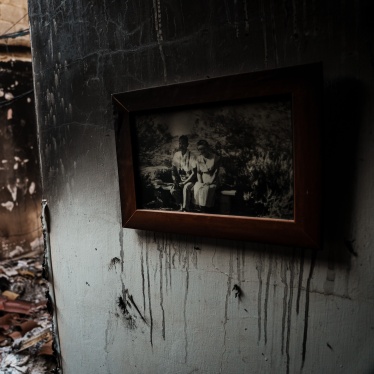- Hamas-led armed groups committed numerous war crimes and crimes against humanity against civilians during the October 7 assault on southern Israel.
- Palestinian fighters committed summary killings, hostage-taking and other war crimes, and the crimes against humanity of murder and wrongful imprisonment.
- Governments with influence over the Palestinian armed groups should press for the urgent release of all civilian hostages.
(Jerusalem) – Hamas’ military wing – the Qassam Brigades – and at least four other Palestinian armed groups committed numerous war crimes and crimes against humanity against civilians during the October 7, 2023 assault on southern Israel, Human Rights Watch said in a report released today. Governments with influence over the armed groups should press for the urgent release of civilian hostages, an ongoing war crime, and for those responsible to be brought to justice.
The 236-page report, “‘I Can’t Erase All the Blood from My Mind’: Palestinian Armed Groups’ October 7 Assault on Israel,” documents several dozen cases of serious violations of international humanitarian law by Palestinian armed groups at nearly all the civilian attack sites on October 7. These include the war crimes and crimes against humanity of murder, hostage-taking, and other grave offenses. Human Rights Watch also examined the role of various armed groups and their coordination before and during the attacks. Previous Human Rights Watch reports have addressed numerous serious violations by Israeli forces in Gaza since October 7.
“Human Rights Watch research found that the Hamas-led assault on October 7 was designed to kill civilians and take as many people as possible hostage,” said Ida Sawyer, crisis and conflict director at Human Rights Watch. “The October 7 atrocities should spur a global call to action for an end to all abuses against civilians in Israel and Palestine.”
Between October 2023 and June 2024, Human Rights Watch interviewed 144 people including 94 Israeli and other nationals who witnessed the October 7 assault, victims’ family members, first responders, and medical experts. Researchers also verified and analyzed over 280 photographs and videos taken during the assault and posted on social media or shared directly with Human Rights Watch.
On the morning of October 7, Hamas-led Palestinian armed groups carried out numerous coordinated attacks including on civilian residential communities and social events and on Israeli military bases in the area of southern Israel bordering the Gaza Strip. The armed groups attacked at least 19 kibbutzim and 5 moshavim (cooperative communities), the cities of Sderot and Ofakim, 2 music festivals, and a beach party. The fighting lasted much of the day and in some cases longer.
Across many attack sites, Palestinian fighters fired directly at civilians, often at close range, as they tried to flee, and at people driving through the area. The attackers hurled grenades, shot into shelters, and fired rocket-propelled grenades at homes. They set houses on fire, burning and choking people, and forcing out others whom they shot or captured. They took dozens hostage and summarily killed others.
Nirit Hunwald, a nurse from Kibbutz Be’eri, where 97 civilians were killed, described dragging a rapid response team member who had been shot into the kibbutz’s dental clinic to treat his wounds: “There was a blood trail. I cannot erase it from my mind, all the blood.”
Agence France-Presse cross-referenced numerous data sources to determine that 815 of 1,195 people killed on October 7 were civilians. The armed groups took as hostages 251 civilians and Israeli security force personnel and took them to Gaza. As of July 1, 116 remained in Gaza, including the bodies of at least 42 who had been killed, according to AFP. Bodies of another 35 who were killed were returned to Israel.
The Izz al-Din al-Qassam Brigades, the armed wing of Hamas, the Palestinian movement that has governed the Israeli-occupied Gaza Strip since 2007, led the assault. Human Rights Watch confirmed the participation of four other Palestinian armed groups based on headbands the fighters wore to indicate their affiliation and their claims of responsibility posted to their Telegram channels on social media.
The armed groups committed numerous violations of the laws of war that amount to war crimes, including attacks targeting civilians and civilian objects; willful killing of people in custody; cruel and other inhumane treatment; crimes involving sexual and gender-based violence; hostage-taking; mutilation and despoiling bodies; use of human shields; and pillage and looting.
The widespread attack was directed against a civilian population. Killing civilians and taking hostages were central aims of the planned attack, not an afterthought, a plan gone awry, or isolated acts. Human Rights Watch concluded that the planned murder of civilians and the hostage-taking were crimes against humanity.
Further investigation is needed into other potential crimes against humanity, Human Rights Watch said, including persecution against any identifiable group on racial, national, ethnic or religious grounds; rape or other sexual violence of comparable gravity; and extermination, if there was a mass killing calculated to bring about the “destruction” of part of a population. These would amount to crimes against humanity if the crimes were part of the attack against a civilian population, under an organizational policy to commit such an attack.
Hamas authorities responded to questions from Human Rights Watch, stating that its forces were instructed not to target civilians and to abide by international human rights and humanitarian law. In many cases, Human Rights Watch investigations found evidence to the contrary.
Accounts from survivors along with verified photographs and videos show Palestinian fighters seeking out civilians and killing them across the attack sites from the moment the assault began, indicating that the intentional killing and hostage-taking of civilians was planned and highly coordinated.
Within days of the attacks, Israeli authorities cut off essential services to Gaza’s population and blocked the entry of all but a trickle of fuel and humanitarian aid, amounting to collective punishment – which is a war crime – exacerbating the impact of Israel’s more than 17-year illegal closure of Gaza and its crimes of apartheid and persecution against Palestinians.
Immediately after the attacks in southern Israel, Israeli forces began an intense aerial bombardment and later a ground incursion, which are ongoing. More than 37,900 Palestinians, most of them civilians, were killed between October 7 and July 1, according to the Ministry of Health in Gaza. Israeli forces have reduced large parts of Gaza to rubble and left the vast majority of Gaza’s population displaced and in harm’s way.
All parties to the armed conflict in Gaza and Israel should fully abide by international humanitarian law. The Palestinian armed groups in Gaza should immediately and unconditionally release civilians held hostage. They should take appropriate disciplinary measures against members responsible for war crimes and should surrender for prosecution anyone facing an International Criminal Court (ICC) warrant.
“Atrocities do not justify atrocities,” Sawyer said. “To stop the endless cycle of abuses in Israel and Palestine, it’s critical to address root causes and hold violators of grave crimes to account. That’s in the interests of both Palestinians and Israelis.”
